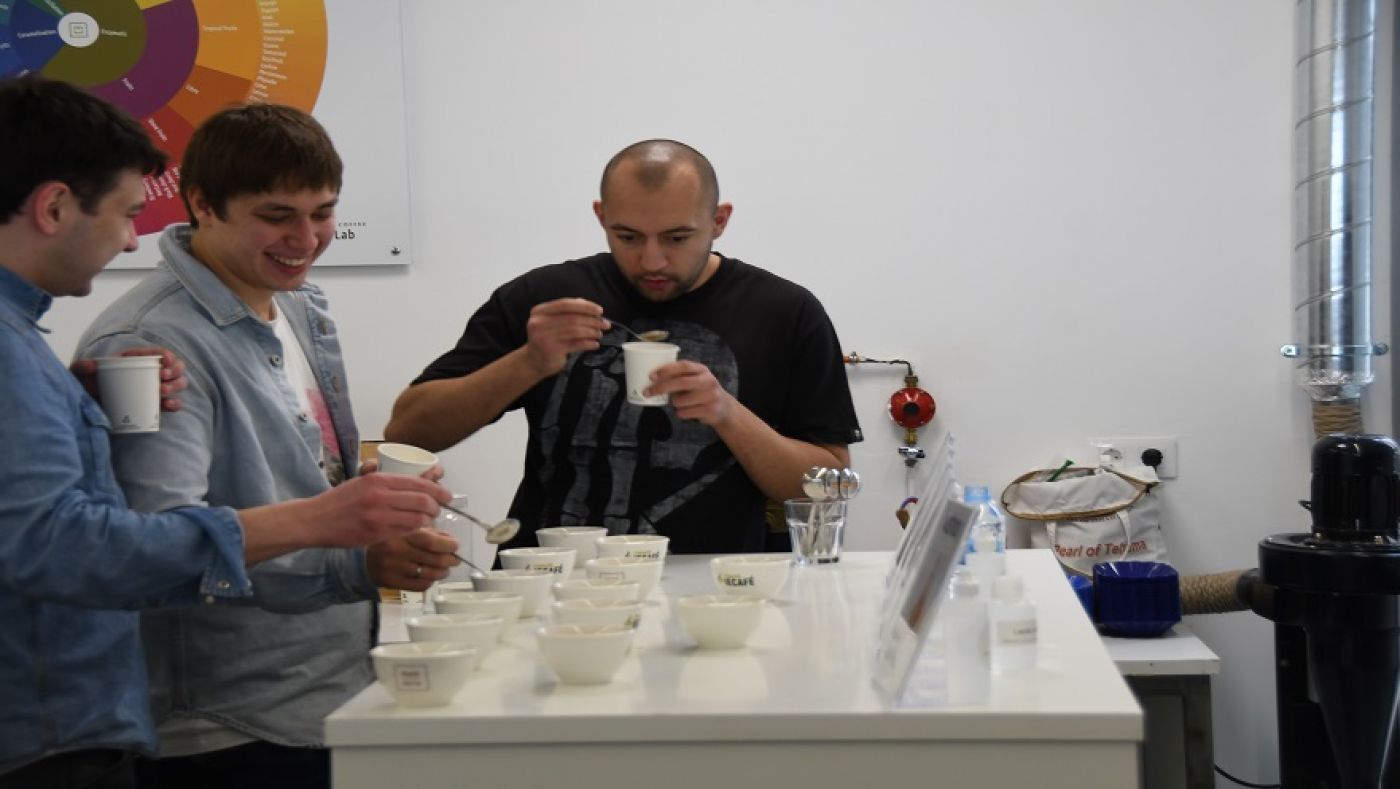
Have you ever wondered how coffee is tasted?
Coffee cupping is a practice in which each of the characteristics that define a coffee are determined and evaluated through tasting. Coffee cupping requires experience and skill to discover the characteristics of each bean through comparison.
Brazilian cupping is the most widely used method for the sensory evaluation of coffee. In it, tasters evaluate and appreciate coffee through an infusion that allows them to distinguish and know the different characteristics of the coffees, evaluating their qualities and defects.
To carry out this type of tasting, 3 to 5 cups of each coffee sample are used, with the objective of evaluating the uniformity of the sample. Each cup must also contain the same amount of coffee, 8 grams per 150 ml of water.
The first thing that is done during a coffee tasting is to evaluate its fragrance, for this purpose the freshly ground coffee beans are smelled in the cup. Next, water at a temperature of 93ºC is poured directly over the ground coffee beans, making sure that all the particles are moistened, and reaching the edge of the cup.
A sample of the green coffee and a sample of the roasted coffee must also be available for visual evaluation once the sensory evaluation has been carried out. It is also necessary to have several cups of hot water on the table so that cuppers can wash their spoons every time they taste each coffee.
Once the coffee has been infused and after a few minutes of rest, a kind of crust is broken that forms on the surface, so that its aroma can be evaluated. After this evaluation, the tasters go on to assess the flavor, sipping the coffee by spoonfuls and with determination. It is here that a general perception of each coffee can be obtained (acidity, body...), evaluating also the aftertaste, that is to say the duration of the positive characteristics of the flavor that remain after the coffee tasting.
Finally, it should be noted that the atmosphere during a tasting session should be silent, avoiding comments and value judgments, as this can affect the assessment made by other tasters.

